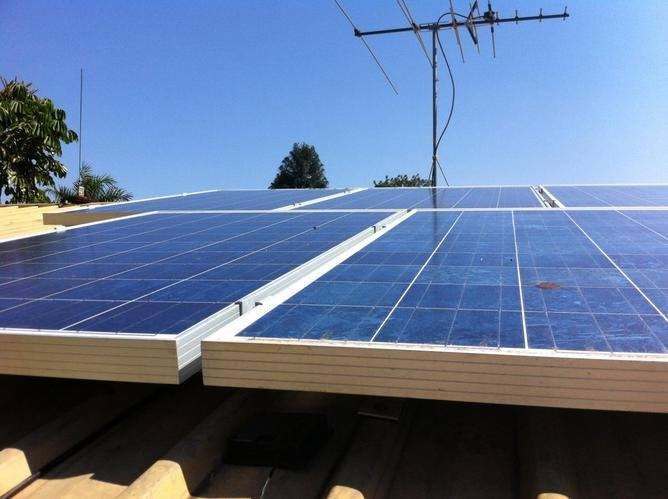Australian based solar organisation Solar Citizens published new research Sunday which serves to demolish the idea that residential solar owners are exclusively members of the champagne sipping, latte set. In fact, the research reveals that solar PV uptake is more common in Australian middle-lower socio-economic households than in higher socio-economic households.
The study was conducted by the Victoria Energy Policy Centre using a sample of over 10,000 household bills – including over 2,000 bills from those with solar panels – from New South Wales, Queensland, South Australia, and Victoria. It is the first study of its kind in Australia and is based on data from CHOICE, the ABS, and Domain.
“People are reaching for ways to get control over their energy costs and for millions of low- and middle-income households, solar is the best way to do that,” said Solar Citizens National Director Joseph Scales. “In fact, this research found that PV uptake was lowest among the highest socio-economic group and highest among the lowest socio-economic group.”
“We also cross referenced this ABS data with Domain data on the value of individual’s actual homes and found people with lower average property values were much more likely to have solar (30%) than those with the highest property values (13%).”

The study comes just a week after the Murdoch media sought to demonise the solar rebates, wrongly claiming that nearly $200 was added to the average household bill. In fact, the answer is $32, and this does not include the benefits.
Speaking to The Age, Victoria Energy Policy Centre director Bruce Mountain suggested there could be any number of reasons behind the low solar uptake for the richer few, including the possibility of potential heritage listing restrictions, heavily treed yards providing too much shade, and a lower-responsiveness to rising electricity prices.
In other words, according to Mountain, buying solar is “not at the top of their list.”
The rationale for those with lower average property values is unsurprising: As power bills soar, taking ownership of your electricity usage and buying in to cheaper power becomes more and more attractive for the less-wealthy – especially as solar prices continue to drop.
“For most people if you have a north-facing roof in any of our cities, solar will pay for itself in five years or less,” said Bruce Mountain.
The research also found that those in the lower socio-economic tiers who areinvesting in solar are helping to reduce electricity prices for everyone.
“By exporting excess electricity back into the grid, people from lower socio-economic groups are providing a low-cost source of power for everyone else,” said Solar Citizens National Director Joseph Scales. “Around a third of all households sell electricity back to their retailers at a rate that is lower than the spot market price.
This research totally debunks the myth perpetuated by the coal lobby that household solar drives up power prices – it does the opposite.
“The 2 million solar houses across Australia act like one huge power station generating around 8900 GWh of electricity in the past year alone – more than any coal fired power station and at much lower cost.”
“In terms of uptake, it’s actually pleasingly rational,” concluded Bruce Mountain. “The people who are economically the people to be getting the greatest benefit from it, appear to be installing it in the greatest numbers.”










